Normal Elementary Phonics Worksheets for Ages 3-6
8 filtered results
-
From - To
Our Normal Elementary Phonics Worksheets for ages 3-6 offer engaging and effective activities designed to develop early reading skills. These printable worksheets feature fun, interactive exercises that introduce young learners to the alphabet, letter sounds, and basic phonetic concepts. Perfect for preschoolers and kindergarteners, each worksheet aims to build a solid foundation in phonics, helping children recognize letters and sounds while boosting their confidence in reading. With approachable and colorful designs, our worksheets make learning to read a uniquely enjoyable experience, ensuring your child will be prepared for future literacy success.
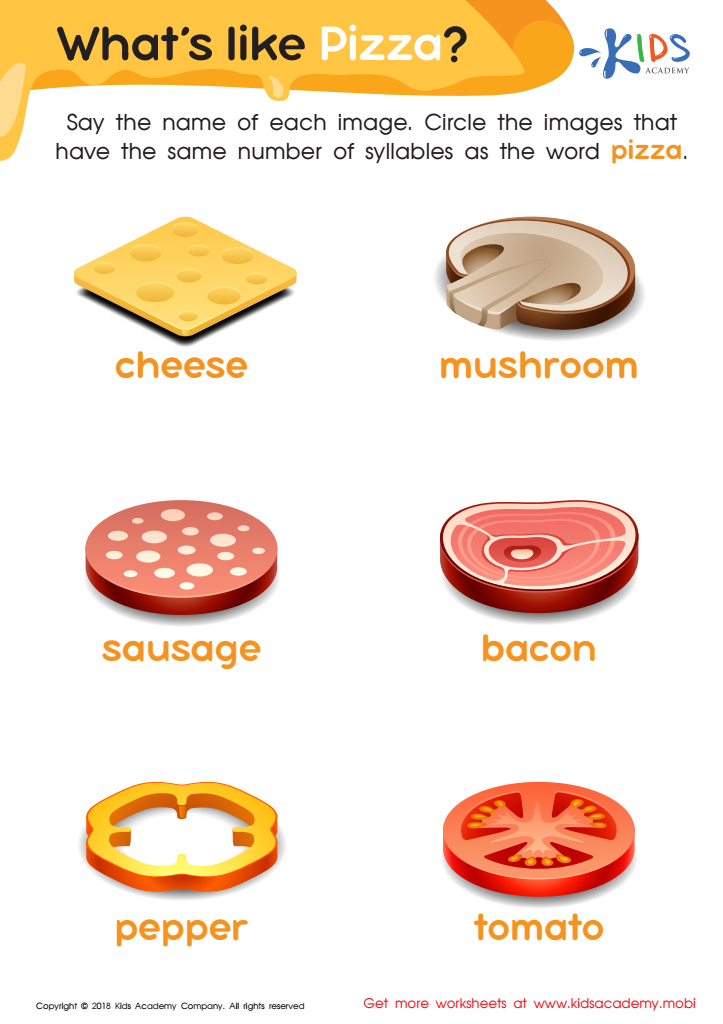

What's Like Pizza? Worksheet
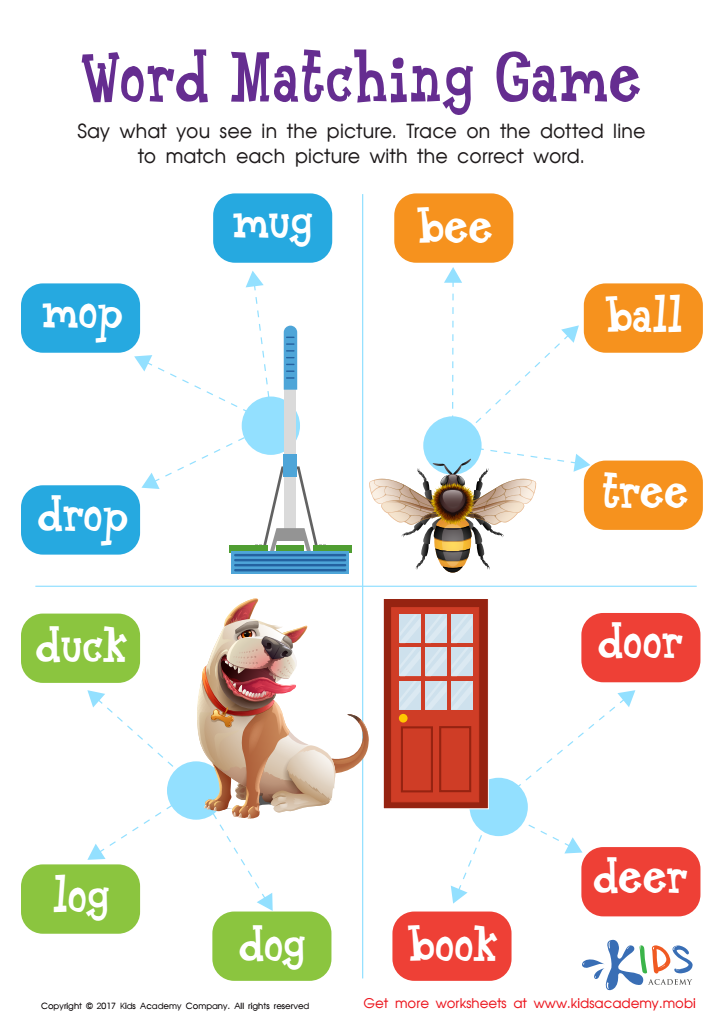

Word Matching Game Worksheet
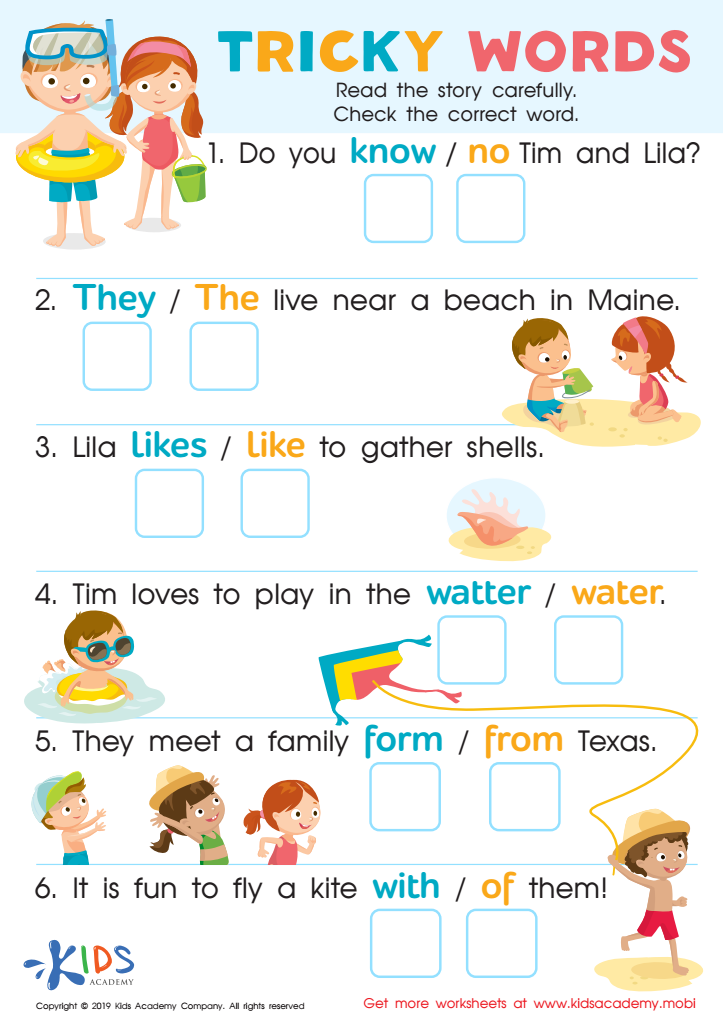

Tricky Words Worksheet
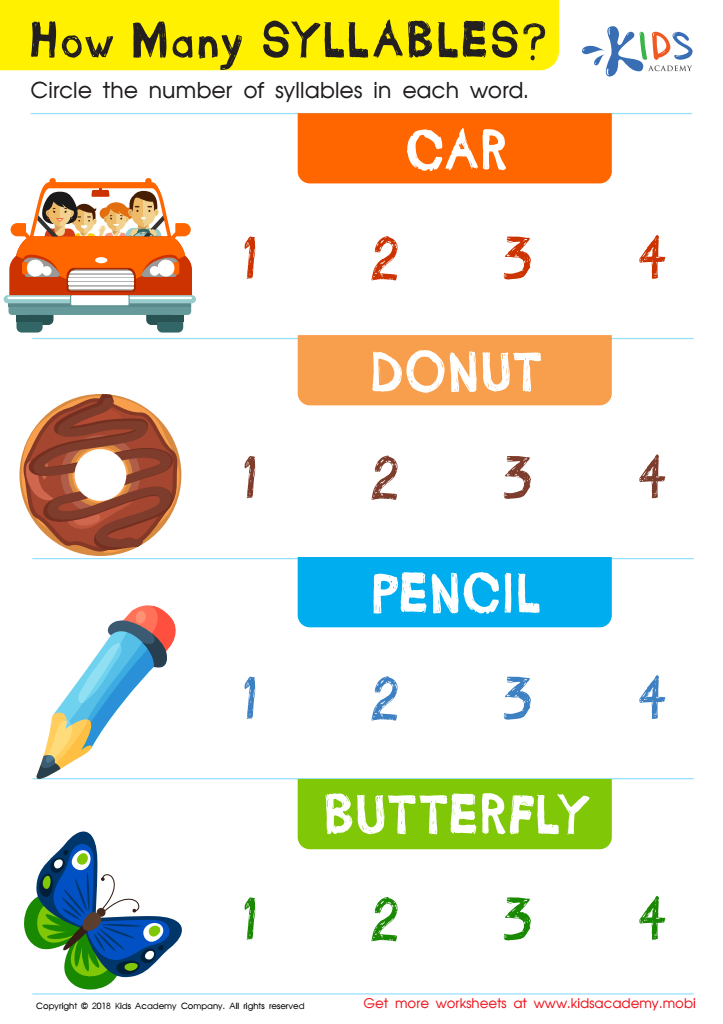

How Many Syllables? Worksheet
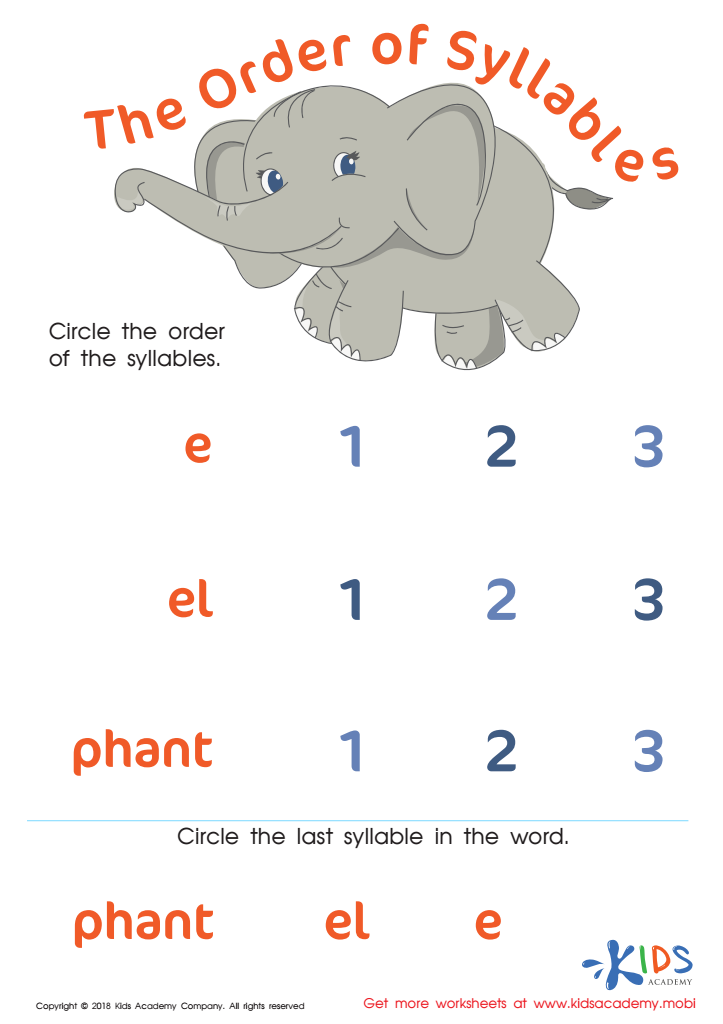

The Order of Syllables Worksheet
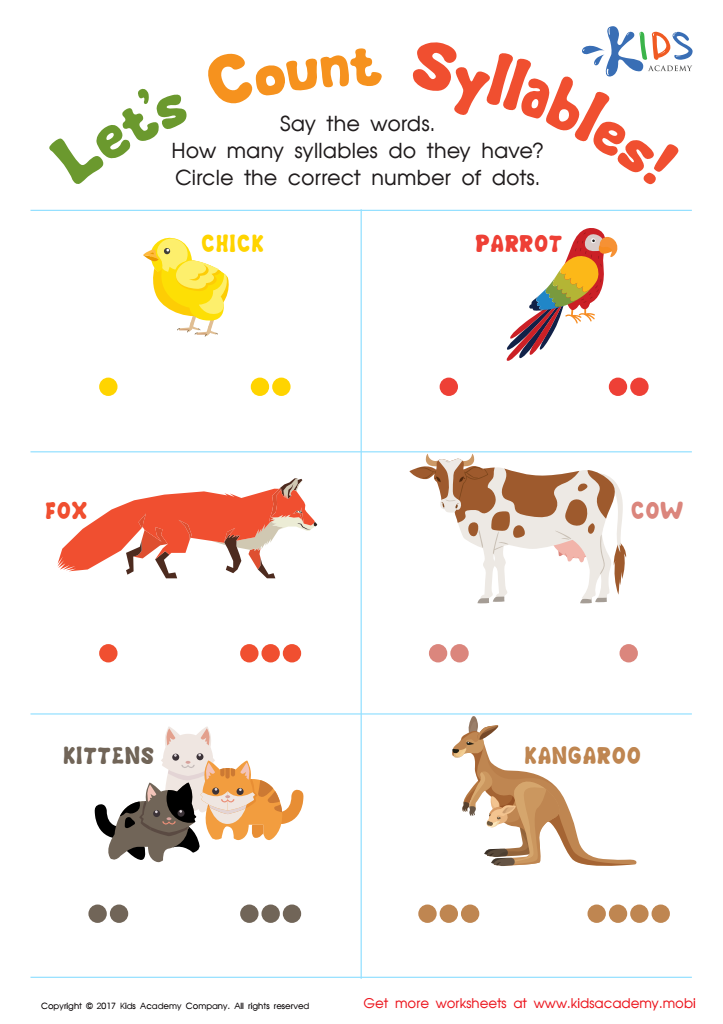

Lets Count Syllables Worksheet


Phonological Awareness: Assessment 1 Worksheet
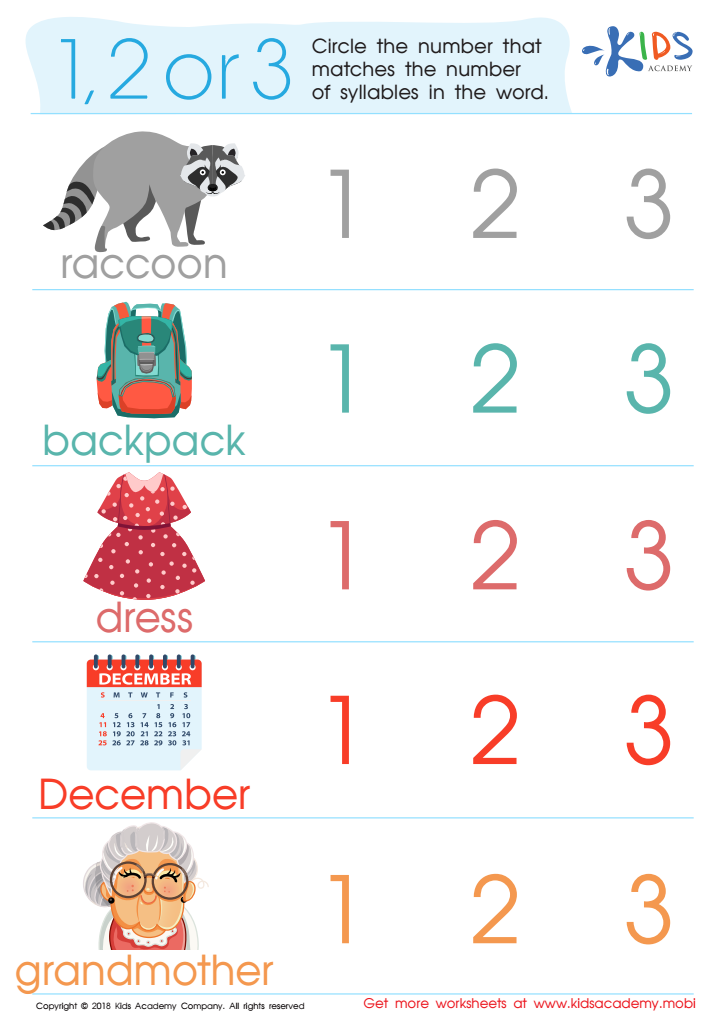

1, 2 or 3? Worksheet
Normal Elementary Phonics for Ages 3-6 sets the crucial foundation for a child’s reading and language development. During this formative period, children’s brains are highly receptive to the systematic learning of sounds and letters. Early phonics instruction enables children to decode words rapidly and accurately, a skill critical for fluent reading. When children grasp the relationship between letters and sounds, they can more easily sound out new words, enhancing their vocabulary and comprehension abilities.
Additionally, early phonics education plays a significant role in boosting a child’s confidence and academic success. Mastery of phonics leads to better reading skills, which are integral across all subjects, including math and science. This early proficiency can translate to a lifelong love of learning. For parents and teachers, supporting phonics instruction means equipping children with the tools they need for effective communication and literacy.
Moreover, introducing phonics at ages 3-6 takes advantage of children's natural curiosity and eagerness to learn. Interactive and playful approaches to phonics can make learning enjoyable, sparking a joy in reading that extends well beyond the classroom. Thus, investing time and effort in Normal Elementary Phonics during these early years is essential for a child's academic journey and overall cognitive development.

 Assign to the classroom
Assign to the classroom






